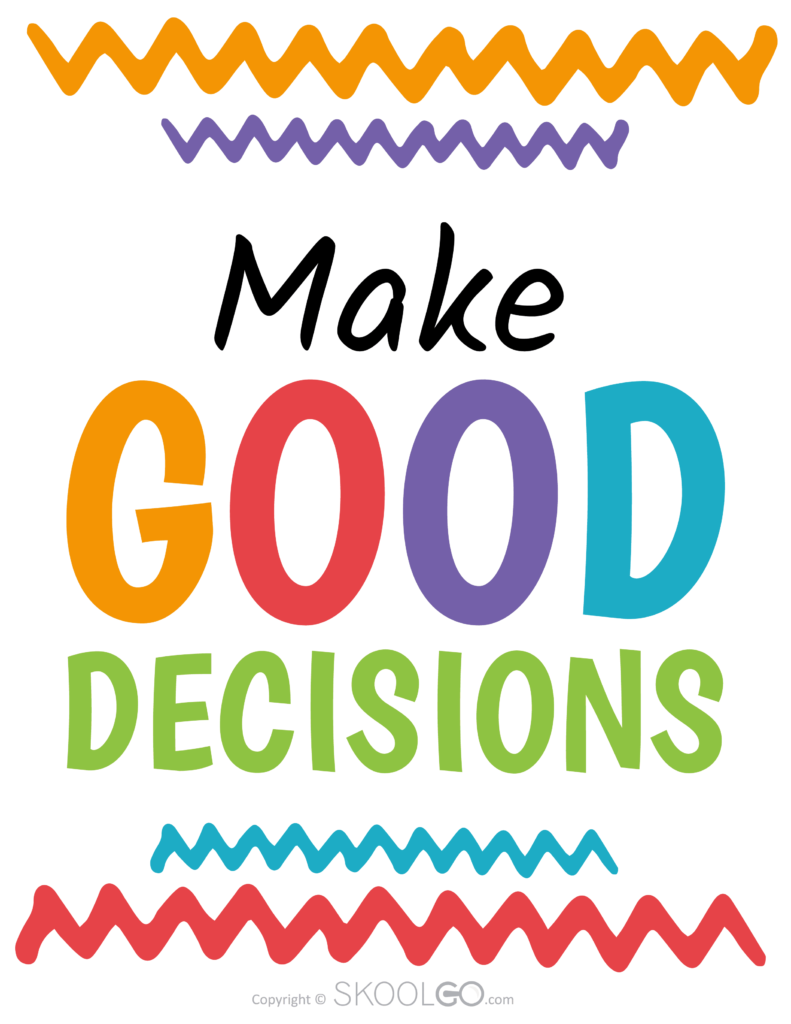
In our fast-paced world, the ability to make good choices is more important than ever.
Each
decisions we make, big or small, impact our lives and shape our future.
Whether it’s choosing
what to eat for breakfast or deciding on a career path, the choices we make can lead us toward
success or set us back. Understanding how to make informed decisions is a skill that can
significantly enhance our quality of life. Understanding the Importance of Choices
Every choice we make is an opportunity to define our values and priorities.
Good choices often stem from a clear understanding of what matters most to us. For instance,
choosing to invest time in family and relationships may lead to a more fulfilling personal life,
while pursuing a career aligned with our passions can provide a sense of purpose and
satisfaction. Conversely, poor choices can lead to regret and missed opportunities. The Process of
Making Good Choices
Identify Your Values:
Knowing what you value is the first step in making good decisions. Consider what is most
important to you—be it health, family, career, or personal growth. This clarity will serve as a
compass for your choices.Gather Information:
Making informed decisions requires gathering relevant information. Research your options, seek
advice from trusted sources, and consider the potential outcomes of each choice. The more you
know, the better equipped you are to make sound decisions. Consider the Consequences: Every
choice has consequences, both immediate and long-term.
Take the time to think about how your decision will affect you and those around you. Will it
bring you closer to your goals or create obstacles?
Trust Your Instincts: While it’s essential to be rational, don’t underestimate the power of your
intuition. Sometimes, our gut feelings can guide us toward the right decision, especially when we
feel conflicted. Be Willing to Adjust:
Life is dynamic, and circumstances can change.
Be prepared to revisit your choices if new information arises or if your situation evolves.
Flexibility can help you navigate challenges more effectively. Learning from MistakesNo
Nobody’s perfect, and mistakes are an inevitable part of life. Instead of dwelling on past errors,
view them as learning opportunities. Reflect on what went wrong and how you can avoid similar
pitfalls in the future. This mindset not only fosters resilience but also enhances your
decision-making skills over time.
The Role of Mindfulness Practicing mindfulness can significantly improve your decision-making
process. By being present and aware of your thoughts and feelings, you can better assess your
motivations and desires. Mindfulness allows you to pause before reacting, giving you the chance
to consider your options more thoughtfully.Conclusion Making good choices is a vital skill that
influences every aspect of our lives. By understanding our values, gathering information,
considering consequences, trusting our instincts, and learning from mistakes, we can navigate
life’s complexities more effectively. Embracing mindfulness can further enhance our
decision-making abilities, allowing us to live more intentionally and purposefully. Ultimately, the
power to shape our lives lies within us, and with each choice we make, we can steer our journey
toward a more fulfilling future.
